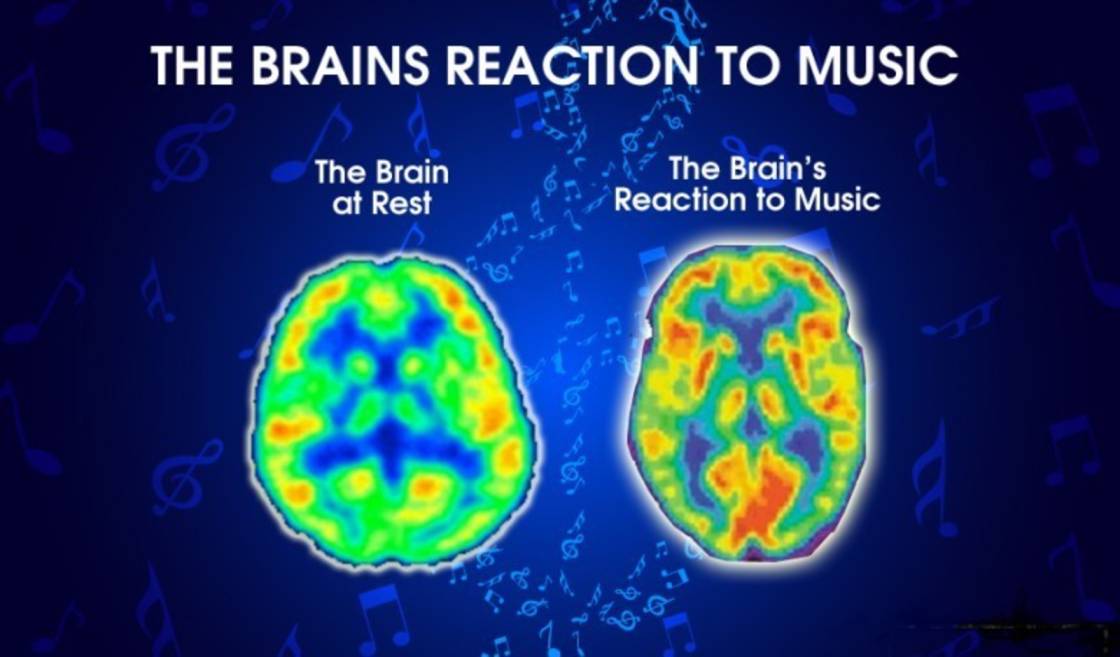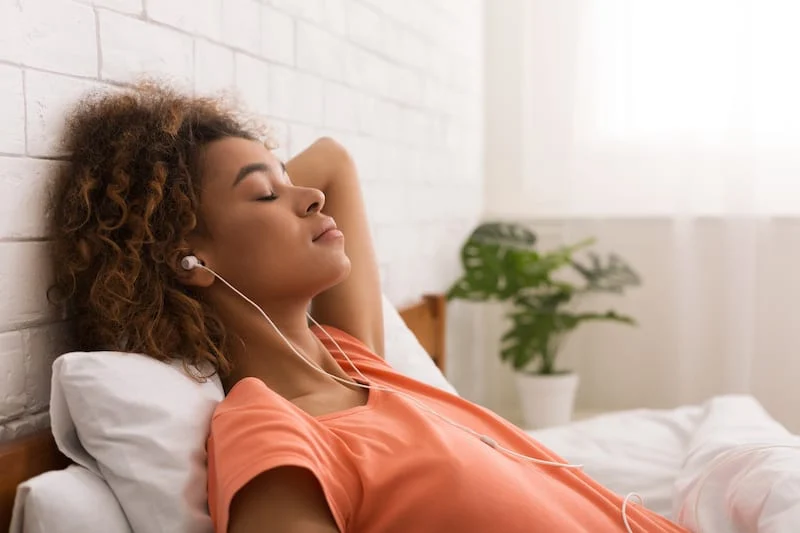In the event that you experience difficulty nodding off around evening time, you've likely attempted essentially everything. However, imagine a scenario in which simply putting on your number one collection could help you nod off and get better rest around evening time.
Might it at some point be that straightforward? Music influences our minds in various ways, and essentially every one of them is certain. It appears to be legit, then, that it could likewise assist us with resting. In this article, we investigate the impacts of paying attention to music while sleeping, and we'll try and reveal some insight into what the perils are.
How Does Music Affect Us?
Our cerebrums are wired to answer music. Furthermore, since our mind conveys messages to all aspects of our body, music can influence us in various ways. On a physiological level, our breathing and pulse will reflect the beat of a tune, and sleeping music is the best time to listen.
Various types of music can also alter our body's scientific and chemical levels. For instance, standing by and listening to charming tunes can support serotonin levels, which fulfills us. That's what the thing is: "lovely" is an emotional term; thus, a similar melody can influence every one of us in an unexpected way.

Paying attention to music actuates the two sides of our mind, the left and the right. Connecting with the two sides of your mind all the while helps your capacity to tackle issues since you're utilizing the innovative left half of your cerebrum simultaneously as the coherent right side.
Music likewise sets off the hippocampus, which is the piece of your cerebrum that is related to long-term memory capacity. That is the reason tunes from the past can set off recollections, and that is that is why a large number of us feel nostalgic when we hear melodies from our experiences growing up, pre-adulthood, or busy times in our day-to-day existence. The melody is assisting with bringing back affectionate and charming recollections.
By and large, music decidedly affects us, with one eminent special case. Uproarious clamor (north of 95 decibels) can adversely influence our judgment. Thus, on the off chance that you're amidst a significant choice, cut back the volume to a healthy level.
Why Listen to Music While Sleeping?
Boosts Sleep Quality & Quantity
However long you're picking tunes that cause you to feel loose and cheerful, nodding off to a charming melody can assist you with nodding off quicker and getting better rest. It's like when we were kids and our folks sang us bedtime songs to "hush" us to rest.
On the off chance that standing by and listening to foundation commotion turns into a piece of your daily practice, the beneficial outcomes can increase. Not exclusively will the tune help relieve and loosen you up.
Yet the routine part of playing melodies just before bed will tell your body that now is the ideal time to rest. You might find yourself ready to nod off easily, essentially in light of the fact that you've prepared your body and that now is the ideal time to hit the hay.
Relaxation
Music can assist us with unwinding, particularly assuming the melody is in the perfect balance of 60 to 80 BPMs (beats per moment). This most intently matches our resting pulse and, thusly, is relieving on an organic level.

All of us are unique, be that as it may. That makes people such wonderful animals. What one individual considers unwinding, another person could view as grinding. For instance, you could like old-style music, and your life partner could be a passing metal fan.
Though you'd dream of ecstatically paying attention to Tchaikovsky, your mate would favor Metallica's most noteworthy hits. To summarize, exactly what you wanted to hear isn't probably going to coordinate with another person's meaning of unwinding.
Fall Asleep Faster
Before the day's over, we have around 1,000,000 thoughts going through our heads. The impolite individual who cut us off on the turnpike, the dishes left unwashed in the sink, the irritating remark Susan made in the gathering, our daily agenda for later... These considerations are engaging for our consideration, which occupies room in our cerebrum and keeps us alert.
Putting on some foundation tunes can take our psyches off our day-to-day interruptions and give our cerebrums another thing to zero in on. Have a go at putting on music as you rest in bed toward the end of an upsetting day. You might find that you nod off a lot quicker!
Trigger Feel Good Chemicals
Music that we appreciate animates serotonin creation, the cheerful, "lighthearted" synthetic in our cerebrum. Individuals who are discouraged are lacking in serotonin.
So it's a good idea that, assuming we need to be blissful, we ought to give our very best to support our serotonin levels normally. It's significantly more straightforward to nod off and stay unconscious when you're feeling blissful, so put on your #1 collection and see what sort of impact it has.
Dangers of Sleeping with Earbuds
Necrosis
Headphones can be awkward to use to stay in bed, particularly assuming that you lie on your side, yet there are a few other secret risks as well.
The most over-the-top sickening one is corruption, which is the point at which your body's tissue kicks the bucket because of the absence of a blood stream. In principle, the strain your headphones put on your ears after some time could remove flow and lead to corruption.
This is a longshot and would most likely find an opportunity to occur. Simply watch out for your ears, and you'll most likely be fine. In the event that you're concerned, ask your PCP since we're not prepared clinical experts and can't be considered dependable assuming your ear tissue passes on from delayed headphone use.
Wax Build Up
Our ears are ceaselessly making wax, which safeguards the ear channel and keeps it clear of unfamiliar articles. In any case, when it develops, it can do the polar opposite. It can stop our ears as well. An excessive amount of wax development influences our hearing, and it's a trial to get it out.
Drawn-out miniature headphone use can prompt wax development in light of the fact that the headphones block wax's leave point. Investigate your current headphones. On the off chance that you see a lot of wax within them, you might have a lot of this substance in your ears too.
Strangulation
On the off chance that you pass on from strangulation from wearing headphones while you rest, you are the meriting victor of a Darwin grant. Indeed, there's a strangulation risk in the event that you lay down with a rope close to your head.
However, it's unbelievably distant, except if you have a phantom living with you. For the individuals who are excessively concerned, attempt remote, Bluetooth-tiny headphones, or cushion speakers, which we'll frame now.
The Benefits of Music for Sleep
Loosening up music triggers changes to the body that, in numerous ways, mirror a rest state. A slower pulse, slower breathing, and lower circulatory strain are physiological changes that make conceivable the method involved with nodding off and staying unconscious. Music likewise soothes our close-to-home mind, facilitating pressure and tension.
Assuming you're paying attention to music that loosens you up before bed, you're basically assisting with tuning your body to rest mode, both genuinely and mentally.
Along these lines, it's nothing unexpected that logical examination has estimated a few advantages that music can have over rest. A few examinations show paying attention to music at sleep time further develops rest quality, remembering for youthful grown-ups, more established grown-ups, and youngsters.
Music improves sleep efficiency.
That is an estimation of the time you spend snoozing compared with the general time you spend in bed. A lower rest proficiency can be a sign of fretful lying down with enlightenments over the course of the evening.
Inconvenience nodding off toward the start of the evening, or waking early and not having the option to fall back snoozing. Research demonstrates the way that a pre-sleep-time music listening meeting can assist you with nodding off more rapidly.
Music is a compelling therapy for the present moment and persistent rest problems, as indicated by a new examination of exploration. The remedial impacts of music on rest get more grounded with time; the review finished up, meaning the more reliably you use music to assist you with dozing, the more viable the training might turn into.
Music Treats Pain and Helps Sleep by Association
One more circuitous advantage that paying attention to music might have for rest? Its capacity to decrease torment. Actual agony and uneasiness are normal hindrances to resting soundly.
Like temperament, torment and rest have a mind-boggling, dynamic relationship that works in the two bearings. Torment impedes rest, and dozing ineffectively builds our aversion to torment. The uplifting news is that at the point at which you work on one, you're probably going to work on the other.
There's a developing collection of explorations showing what our old predecessors appear to have known: music can ease torment. An investigation of in excess of 70 examinations shows paying attention to music previously, during, and after medical procedures decreases torment (as well as nervousness). Patients who paid attention to music were less dependent on torment prescriptions.
Standing by and listening to music can help with both intense and persistent agony, including the hard-to-deal with constant torment related to conditions like fibromyalgia.
Simultaneously, it eases tension; music likewise animates the resistant framework and gives an outlet to close-to-home delivery, which might assist with making sense of why studies show music is viable in further developing agony in a range of conditions and conditions in both youngsters and adults.







